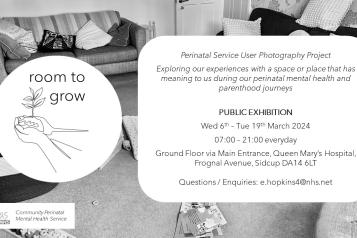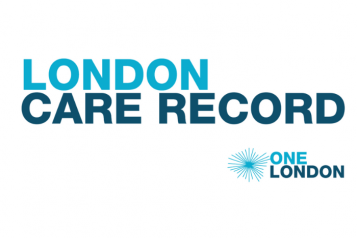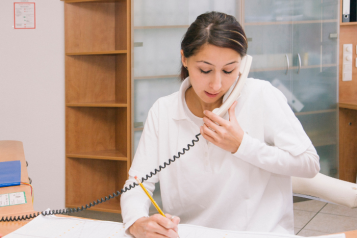Staying well through winter

Vaccines
Get your 1st, 2nd and booster doses of the Covid-19 Vaccine
The COVID-19 vaccination offers you the best protection from the virus. A booster is available to eligible groups. For up-to-date information on the COVID-19 vaccination programme, or if you have any questions, please visit www.nhsvaccinefacts.com or speak to your doctor.
Have a flu vaccine if you are eligible
It's important to get the flu vaccine if you are eligible.
The flu vaccine is a safe and effective vaccine. It's offered every year on the NHS to help protect people at risk of flu and its complications.
The best time to have the flu vaccine is in the autumn before flu starts spreading. But you can get the vaccine later. Find out more.
The children’s nasal spray flu vaccine is safe and effective and is offered every year to help protect them against flu. For more information on the flu vaccine for children and where you can get it, click here.
Self Care
You can treat most minor illnesses and injuries at home. Keep your medicine cabinet well-stocked with essentials like pain killers, antihistamine, cold and flu remedies, anti-diarrhoea and indigestion medicine. If you have children, make sure you’ve got the right medicines according to their age.
Pharmacy
If you’re suffering from a cold, cuts and grazes or minor illnesses, your pharmacist will be able to give you remedies, so you don’t have to see a GP or nurse. Your local pharmacist is trained to help you with the safe use of prescription, repeat prescription and over-the-counter medicines. Pharmacies are often open until late and at weekends, and many have a quiet area where you can talk to a pharmacist in private. For more information about community pharmacy services in Bexley click here
GP
If you’ve been unwell for more than 48 hours and need medical help, you can book an appointment with a healthcare professional at your GP practice. When you contact the GP practice, you will be asked a number of questions to help direct you to the healthcare professional best suited for your health care needs. GP practices provide many ways you can access their services including online consultations, telephone, video and face-to-face appointments. If you have the NHS app you can use this to access some of the services available from your GP practice.
NHS 111
You can call NHS111 for help with an urgent medical problem. You can contact the NHS111 service online at www.111.nhs.uk or you can call 111, 24 hours a day, 7 days a week. Your symptoms will be assessed and you will be provided with healthcare advice. This may include:
- Self-care
- Visiting a pharmacy
- Contacting your GP practice
- Contacting an urgent treatment or walk-in centre
- Going to A&E. If needed, NHS111 can also send an ambulance, or where available can also book appointment times to some services.
A&E
Emergency services should only be used for life-threatening illnesses or accidents which require immediate, intensive treatment. In an emergency you should ring the ambulance service (via 999) or go to the hospital’s Accident and Emergency (A&E) department. If it’s not life-threatening or an emergency, please use the other options available to you.
Less severe injuries can be treated at the Urgent Care Centre at Queen Mary’s Hospital, Sidcup. If you’re unsure remember to think NHS 111.
NHS App
If you have a smart phone or tablet, the NHS app is a secure way to access a range of NHS services. To use the app, you must be registered with a GP surgery in England and aged 13 or over. There are many things you can do on the app including:
- Use the NHS symptom checker
- Order your repeat prescriptions
- Get health advice
- See your test results and access other information on your health record
- See your NHS COVID vaccination status. More information is available at www.nhs.uk/nhs-app
STAY WELL
Keep your home warm
It’s important to keep warm in winter – both inside and outdoors. Keeping warm over the winter months can help to prevent colds, flu and more serious health problems such as heart attacks, strokes, pneumonia and depression.
Heat your home to at least 18°C (65°F) as breathing cold air can be bad for your health as it increases the risk of chest infections.
Make sure you’re receiving all the help that you’re entitled to. There are grants, benefits and plenty of ways to make your home more energy efficient, improve your heating or get help with bills.
Those on certain benefits are able to claim financial and practical help with heating their home. Further information is available at: www.gov.uk/winter-fuel-payment and www.gov.uk/winter-fuel-payment www.gov.uk/winter-fuel-payment
Look out for others
Remember that other people, such as older neighbours, friends and family members, may need a bit of extra help over the winter months. There’s a lot you can do to help people who are more frail than you:
- Make sure they’re stocked up with enough food supplies for a few days, in case they can’t go out and if they do need to go out in the cold
- Encourage them to wear shoes with a good grip and a scarf around the mouth to protect them from the cold air.
- Ensure they get any prescription medicines before the Christmas holidays start and if bad weather is forecast.
- If they need help over the holiday period when the GP practice or pharmacy is closed or they’re not sure what to do, remind them NHS 111 can help.
Keep yourself active
Where possible try to keep moving when you’re indoors. Try not to sit still for more than an hour or so and wear several layers of light clothes – several layers trap warm air better than one bulky layer.
Regular exercise can help improve your mental health, reduce the risk of falling and can be beneficial for recovery if you do get ill.
There are many activities you could do at home, such as walking up and down stairs, dancing, gardening, housework, or taking part in online fitness classes. It doesn’t matter what you do, as long as it’s something you enjoy and keeps you moving.
Don’t do anything that doesn’t feel comfortable and trust your instincts about your own limits. Stop if you’re feeling any pain or lightheaded and stay hydrated.
Useful links
NHS Get Active – NHS fitness apps and workouts you can do at home.
Sport England – list of useful apps and links to online workouts, including workouts for older adults, with kids and disabled children.
Get Active – online exercises workouts, including ones suitable for older people and those living with a health condition.
Eat a Healthy Diet
Sticking to a healthy diet won’t prevent you from picking up winter illnesses, but it can help maintain your immune system to better protect you. And should you fall ill, a nutritious diet can help speed up your recovery. For more information about a healthy diet visit NHS Eat Well
Download the Keep Well This Winter In Bexley Leaflet
The South East London Clinical Commissioning Group have produced a useful leaflet which is being distributed to all Bexley residents. You can download a copy of the leaflet below.


